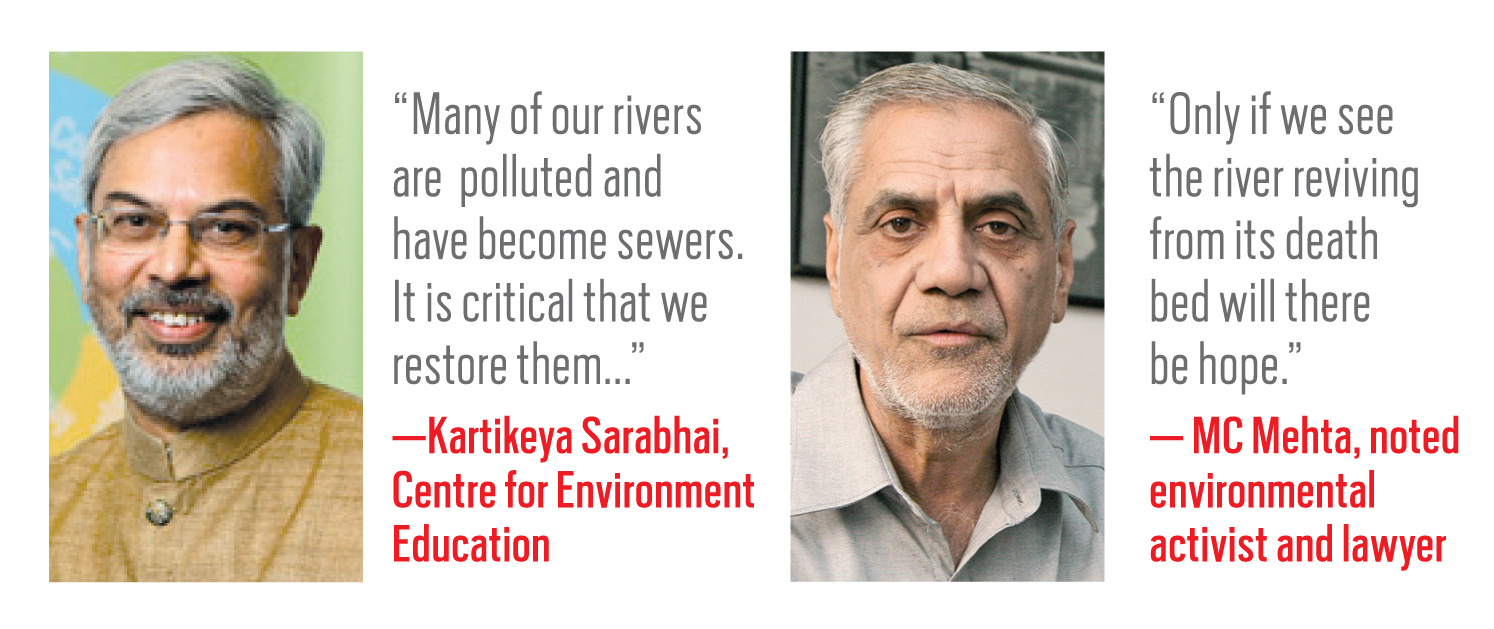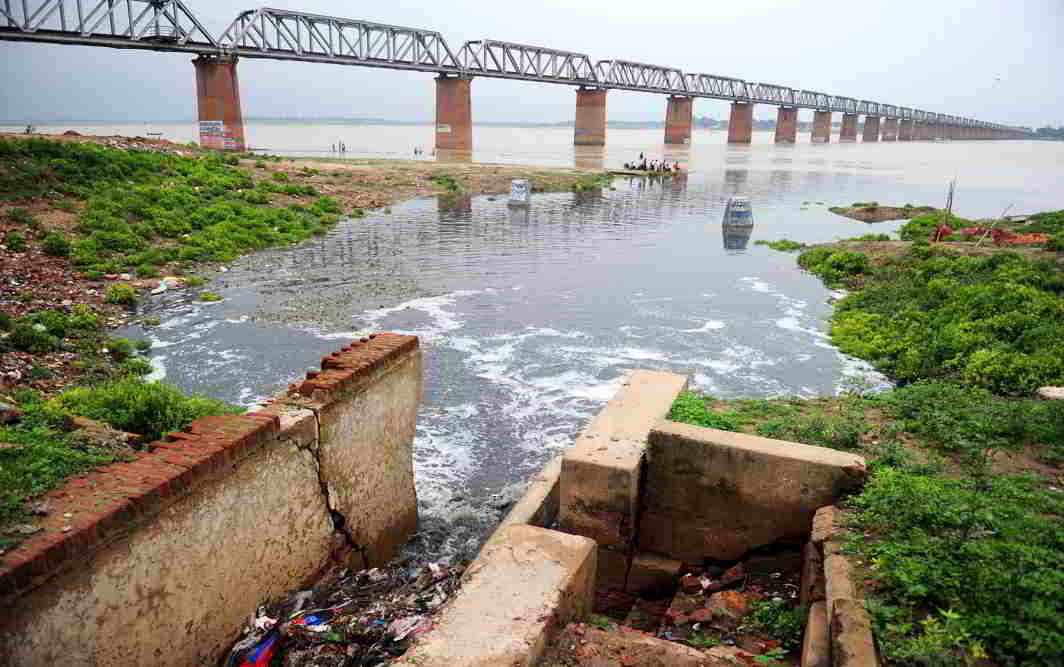Though the Uttarakhand High Court has given an order granting “living entity” status to rivers Ganga and Yamuna, this will help save them only if there is political will to implement existing laws
~By Ramesh Menon
Few rivers in the world have got the attention and reverence that the Ganga has. Though it is considered the most holy river in India, it continues to be ravaged by man-made pollution, making it toxic and dangerous at many stretches. Government schemes to clean the Ganga have been on for over 30 years at a huge cost to the exchequer. But, for the dying river, this is tokenism. So when the Uttarakhand High Court ruled that the Ganga and the Yamuna were living entities, it ruffled a few feathers in government circles who have been repeatedly pulled up by the National Green Tribunal for not taking punitive action against polluters or the required steps to keep the river alive.
A division bench of Justices Alok Singh and Rajiv Sharma pointed out that the two rivers were losing their very existence. The judgment was intended to ensure the preservation of both rivers. Just a few days ago, New Zealand had passed a landmark bill making the Whanganui River a living entity with full legal rights. A leading lawyer said that the Uttarakhand High Court had taken inspiration from this unique move to pass the landmark order.
What this would mean is important. As both the rivers have been stamped living entities, they would have legal rights like a person. The Court has designated an authority which would function like a guardian to the rivers and also file cases on their behalf if they were being abused or polluted, for instance.
The Court has appointed the Director of the Namami Ganga programme, the chief secretary and advocate-general of Uttarakhand, who like guardians, will ensure the well-being of the rivers. They have been appointed to serve as “parents” for Ganga and Yamuna. “The Advocate General shall represent at all legal proceedings to protect the interest of Rivers Ganges and Yamuna,” the order said.
In numerous cases, officials of both Uttar Pradesh and Uttarakhand have been pulled up by the courts for not ensuring the protection of the rivers. Now, after this ruling, they can be sued on behalf of the rivers. They would be largely responsible for the funds that are allocated for cleaning the rivers.
After this ruling, the central government has to set up a Ganga Management Board within two months, which the Court said would look after irrigation, rural and urban water supply and generation of hydro power, navigation and industries near the river. Mining in the river bed of the Ganga and its highest flood plain area, the ruling said, has been forthwith banned. The Court asked the district magistrate and sub-divisional magistrate to ensure the order was implemented.

Kartikeya Sarabhai, Director, Centre for Environment Education, Ahmedabad, said: “It is on the major rivers that our civilisation has evolved. Today, many of our rivers are highly polluted and have become sewers. It is critical that we restore them not only for their ecological importance but also for us as our lives are ultimately connected to them.”
Noted environmental activist and lawyer MC Mehta told India Legal: “It is a wonderful order that underlines the value of water in our lives.” He has battled with the courts on numerous environmental issues. He pointed out that there were many laws that can protect the river, but have never been implemented or enforced. “We have given the Ganges the status of a God. But look at the way we have destroyed it. It is almost dead. There is no political will to save the Ganga and Yamuna. State authorities have told the courts that they do not even know how many industries there are on its banks and how many drains are being emptied into it. There is little hope with realities like this,” said Mehta.
Mehta had, in an earlier petition, pointed out that those who were polluting the Ganga were violating the fundamental rights of people living beside it. The NGT had in a series of hearings subsequently pulled up officials who could not answer basic questions on how thousands of crores had been spent in the guise of cleaning it.
The Court said that in order to protect the recognition and faith of society, Ganga and Yamuna were required to be declared as living persons as they were central to the existence of half of the Indian population, their health and well-being. Undoubtedly, this is an unusual order but whether this will save both these dying rivers remains to be seen. It already seems too late as much of the damage is irreversible.
Mehta stressed: “Empty platitudes will not help. We all have seen millions of people pray to the river and worship it. But that has not stopped criminals from killing it. There have to be strict punishments as there are laws for it. But, they have not been implemented as no one cares. We have seen executives in charge of these rivers make fools out of politicians and we have seen politicians make fools out of people. Only if we see the river reviving from its death bed will there be hope.”


